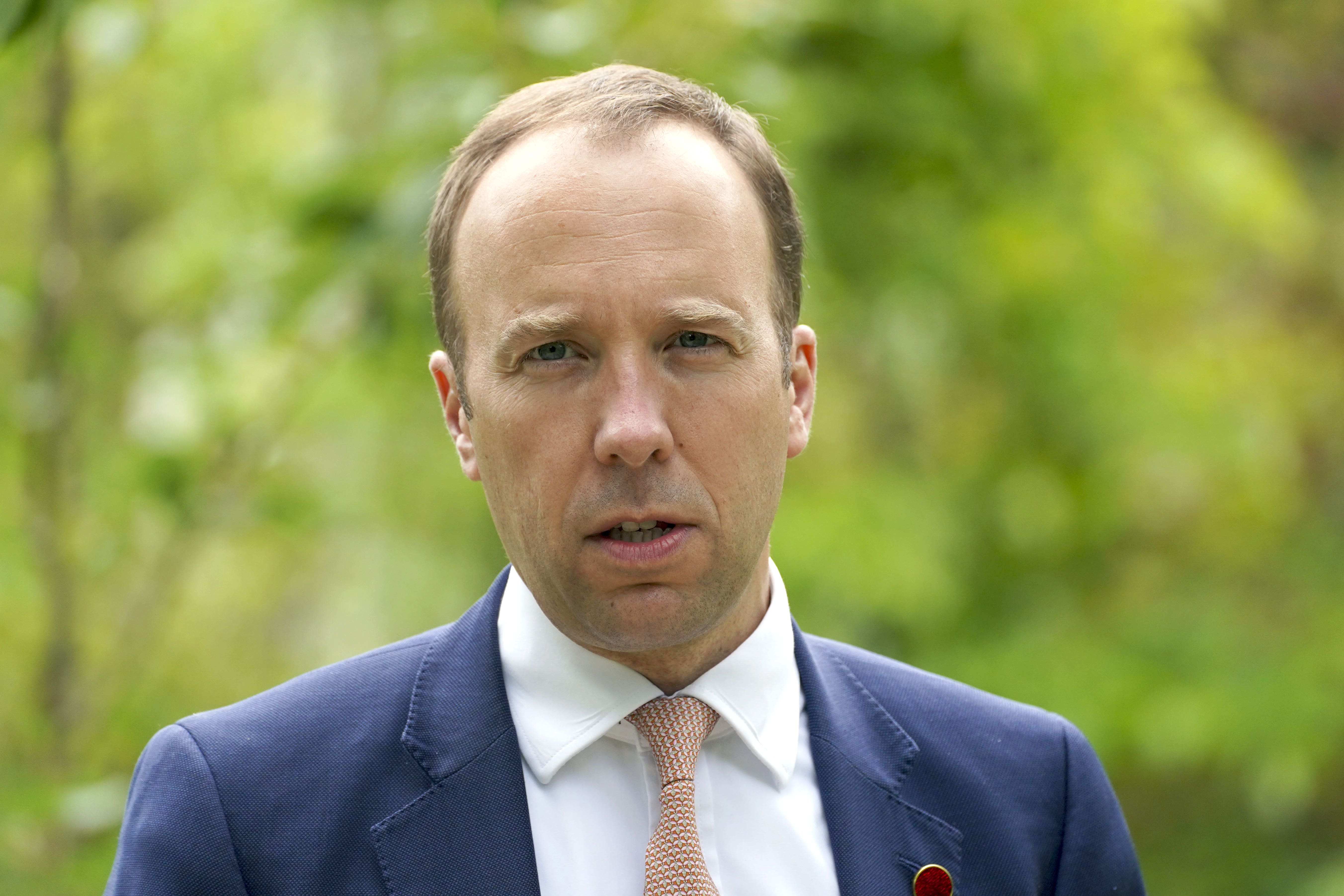Hancock breached Commons code of conduct by lobbying standards tsar
Former health secretary Matt Hancock should apologise to MPs and the Parliamentary Commissioner for Standards for the ‘minor breach’.

Your support helps us to tell the story
From reproductive rights to climate change to Big Tech, The Independent is on the ground when the story is developing. Whether it's investigating the financials of Elon Musk's pro-Trump PAC or producing our latest documentary, 'The A Word', which shines a light on the American women fighting for reproductive rights, we know how important it is to parse out the facts from the messaging.
At such a critical moment in US history, we need reporters on the ground. Your donation allows us to keep sending journalists to speak to both sides of the story.
The Independent is trusted by Americans across the entire political spectrum. And unlike many other quality news outlets, we choose not to lock Americans out of our reporting and analysis with paywalls. We believe quality journalism should be available to everyone, paid for by those who can afford it.
Your support makes all the difference.Former health secretary Matt Hancock is expected to apologise to Parliament for breaching the MPs’ code of conduct by attempting to influence the Commons standards tsar.
Mr Hancock committed the “minor breach” by writing an unsolicited letter to Parliamentary Commissioner for Standards Daniel Greenberg in defence of senior Tory Steve Brine, who was under investigation for an alleged breach of lobbying rules.
The Commons Committee on Standards said: “This was a minor breach of the Code; however, Mr Hancock has still not acknowledged his mistake.”
The committee recommended that Mr Hancock should make a personal statement to apologise to the House of Commons and the commissioner.
He should also attend a “briefing on his obligations under the code with the commissioner”, the committee’s report said.
The committee said Mr Hancock did not set out to breach the rules, had no prospect of personal gain and did not act with malice by writing to the commissioner.
But it said the former Cabinet minister had displayed a “lack of attention to the rules” and “it is concerning that a member with this experience has not taken account of these provisions of the code”.
At the time of Mr Hancock’s letter in March, Health and Social Care Committee chairman Mr Brine was under investigation over claims he lobbied the head of the NHS on behalf of a firm for which he was working as a paid consultant.
The details that led to that probe were revealed in the tranche of leaked WhatsApp messages from Mr Hancock published by the Daily Telegraph.
In his letter to Mr Greenberg, Mr Hancock said: “I want to make it clear to you that it is my firm belief that what Mr Brine did was acting overwhelmingly in the national interest.”
He said Mr Brine “did nothing improper and should be cleared from any accusation given his actions were in line with his duties as a Member of Parliament and British citizen to help our country in its time of need”.
In May, the commissioner concluded that Mr Brine had not properly declared his work for Remedium Partners while contacting Mr Hancock and Michael Gove but cleared him of seeking a financial benefit for the firm, which was offering anaesthetists to the NHS free of charge.
The case was dealt with under the rectification procedure, with Mr Brine accepting the decision and apologising for the breaches.
In a memorandum on Mr Hancock’s case, the commissioner said: “The impression I have gained from my inquiry is that Mr Hancock has not applied his mind to the important distinction between evidence and opinion.
“Nor has he carefully considered how his opinion about the correct outcome for my inquiry into Mr Brine might put him on the wrong side of the rules laid down by the House.”
Mr Hancock is expected to give a short personal statement in the Commons later to address the report’s recommendations.